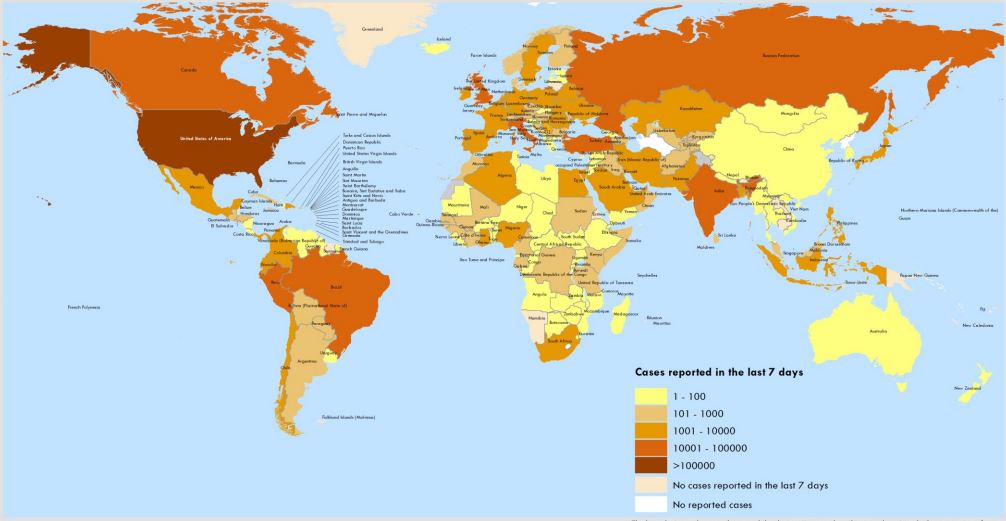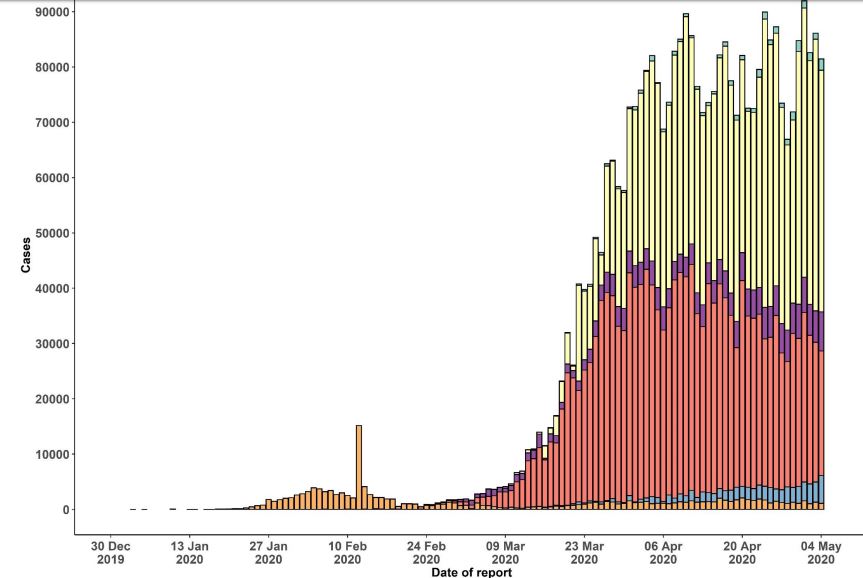
Every year on 05 May we celebrate Hand Hygiene Day. It is a great opportunity to mobilise people around the world to increase adherence to hand hygiene practices. Globally 3 billion people lack hand hygiene facilities at home and two out of five health care facilities lack hand hygiene at points of care. Effective infection prevention and control measures, including hand hygiene, are crucial to ensuring health facilities and our communities do not become hubs of Covid-19 transmission.
Globally, there have been over 3.5 million recorded cases of Covid-19, including 243,401 deaths. Access to necessary hand washing and personal protective supplies has become increasingly challenging as a result of stock-outs of supplies. When hand hygiene is provided free of charge and is made obligatory by public health authorities, acceptability and adherence to hand hygiene best practices are improved. Unprecedented global demand for Personal Protective Equipment (PPE), ventilators and other critical items for the Covid-19 response has resulted in acute supply shortages. This makes the importance of hand hygiene even more important.
Covid -19 virus is transmitted through respiratory droplets or contact. Contact transmission occurs when contaminated hands touch the mucosa of the mouth, nose, or eyes; the virus can also be transferred from one surface to another by contaminated hands, which facilitates indirect contact transmission. Consequently, hand hygiene is extremely important to prevent the spread of the Covid -19 virus. It also interrupts transmission of other viruses and bacteria causing common colds, flu and pneumonia, thus reducing the general burden of disease. Although awareness of the importance of hand hygiene in preventing infection with the Covid -19 virus is high, access to hand hygiene facilities that include alcohol-based hand rubs as well as soap and water is often suboptimal in the community and in health care facility settings. We know that Covid-19 can be transmitted by asymptomatic people, so hand hygiene is essential for everyone. So, what is required:
- One or several hand hygiene stations (either for handwashing with soap and water or for hand rubbing with an alcohol-based hand rub)b should be placed in front of the entrance of every public (including schools and healthcare facilities) or private commercial building, to allow everyone to practice hand hygiene before entering and when leaving it.
- Health facilities should be provided at all transport locations, and especially at major bus and train stations, airports, and seaports.
- The quantity and usability of the hand hygiene stations should be adapted to the type (e.g. young children, elderly, those with limited mobility) and number of users to better encourage use and reduce waiting time.
- The installation, supervision, and regular refilling of the equipment should be the overall responsibility of public health authorities and delegated to building managers. Private sector and civil society initiatives to support the commodities, maintenance, and effective use are welcome.
- The use of public hand hygiene stations should be obligatory before passing the threshold of the entrance to any building and to any means of public transport during the Covid -19 pandemic. Repeated hand hygiene whenever outside private homes can in this way become part of the routine of everyday life in all countries.
- All private and public health care facilities should establish or strengthen their hand hygiene.
- Health care workers should perform hand hygiene using the proper technique and according to the instructions. In particular, health care professionals must practice proper hand hygiene before putting on PPE and after removing it, when changing gloves, after any contact with a patient with suspected or confirmed Covid -19 virus, their waste, or the environment in the patients’ immediate surroundings, after contact with any respiratory secretions, before food preparation and eating, and after using the toilet.
- Members of the general public are encouraged to wear cloth face masks and practice proper hand hygiene at all times when in communal settings.
The situation for refugees
Most refugees and migrants live in communal accommodation in cities, towns, industrial and urban areas. They face similar or increased health threats from coronavirus disease as their host populations. However, due to the conditions of their migratory journeys, limited employment opportunities, overcrowded and poor living and working conditions with inadequate access to food, water, sanitation, and other basic services, refugees and migrants may have specific vulnerabilities. Even in Europe where many refugees and migrants have sought safety, a second wave of Covid-19 is predicted, even before we have reached the peak case load. Many refugees and migrants are excluded from national programs for health promotion, disease prevention, treatment and care, as well as from financial protection schemes for health and social services. This exclusion makes early detection, testing, diagnosis, contact tracing and seeking care for Covid -19 difficult for refugees and migrants thus increasing the risk of outbreaks in these populations, and that such outbreaks may go unchecked or even actively concealed. These conditions present an additional threat to public health.

The right to the enjoyment of the highest attainable standard of physical and mental health is equally applicable to refugees and migrants regardless of their location or legal status. All states have an obligation to protect and promote the right to health for all people on their territory, without discrimination, and this includes refugees and migrants. This refers to the right to access health-care services, such as testing, diagnostics, care and treatment and referral as well as prevention and health promotion-related activities for Covid-19. Refugees and migrants should be involved and engaged in the design of the national and sub-national Covid -19 readiness and response plans, decision-making.
What you can do?
A great amount of free online training is available here. Educate yourself and ensure conversations you are having about Covid-19 are informed and accurate. Practice appropriate social distancing, wear a cloth face mask when in public, and practice appropriate and regular hand hygiene.
Recommendations
Humanitarian Advisors calls on all governments and ministries of health to improve hand hygiene practices widely to help prevent the transmission of the Covid-19 virus by:
- Providing universal access to public hand hygiene stations and making their use obligatory on entering and leaving any public or private commercial building and any public transport facility.
- Improving access to hand hygiene facilities and practices in health care facilities.
- Review national Covid-19 and emergency preparedness and response plans, national and local capacity, legal framework and regulatory requirements for providing health services to refugees and migrants.
- Accelerate progress towards achieving universal health coverage. Refugees and migrants should be progressively integrated into the existing local and national health structures. They also should be integrated into existing risk pooling mechanisms, the same as nationals. Universal coverage and solidarity in health-service financing can be ensured by providing free testing and referrals as an emergency procedure and by avoiding excessive reliance on out-of-pocket payments for Covid-19-related health services.
- Prevent human-to-human transmission and reduce mortality and morbidity from Covid-19 among refugee, migrant and their host populations. Inclusive public health measures and interventions are required to save lives and reduce the further spread of the disease among all populations including refugees and migrants.
- Strengthen community hygiene, particularly in informal urban areas and settlements. Such areas are often inhabited by vulnerable migrant populations. Local authority and community efforts to improve access to clean safe water, sanitation and waste management, and to promote good hygiene measures should be supported.
1 thought on “World Hand Hygiene Day”